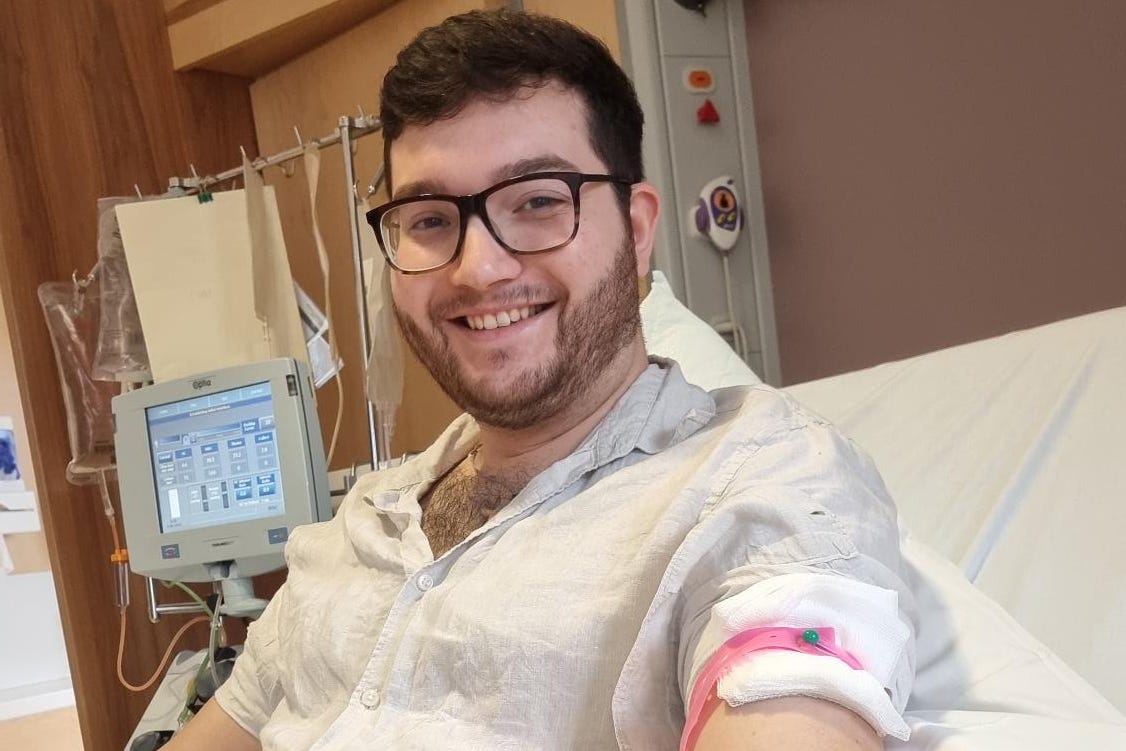World-first study to identify stem cell super donors launched
Scientists will analyse DNA samples from up to 5,000 past donors to find out which genes make some people super donors.

Your support helps us to tell the story
From reproductive rights to climate change to Big Tech, The Independent is on the ground when the story is developing. Whether it's investigating the financials of Elon Musk's pro-Trump PAC or producing our latest documentary, 'The A Word', which shines a light on the American women fighting for reproductive rights, we know how important it is to parse out the facts from the messaging.
At such a critical moment in US history, we need reporters on the ground. Your donation allows us to keep sending journalists to speak to both sides of the story.
The Independent is trusted by Americans across the entire political spectrum. And unlike many other quality news outlets, we choose not to lock Americans out of our reporting and analysis with paywalls. We believe quality journalism should be available to everyone, paid for by those who can afford it.
Your support makes all the difference.A world-first study to identify people who could be stem cell super donors has been launched in the UK.
Scientists will analyse DNA samples from up to 5,000 past donors to find out which genes influence how many stem cells people are able to donate.
The GeSTy study, funded by NHS Blood and Transplant (NHSBT), will look for signs of any genes associated with higher stem-cell yields.
The more stem cells you can give, the more likely the transplant will be a success
Stem cells special types of cells that can develop into many different types of cells in the body.
It means they can be used to treat a wide range of conditions, from bone marrow transplants to replacing cells damaged by chemotherapy.
However, more than 400 UK patients each year are unable to have this potentially life-saving treatment because they lack a suitable donor, NHSBT says.
Around 40% of donors do not give a high enough stem cell yield on the first donation, the health authority said.
Scientists are hoping answers may lie in the samples held by the NHS Blood and Transplant registry and the Anthony Nolan registry of past donors.
Dr Rachel Peck, clinical research fellow at NHSBT – one of the study leads, said: “NHS Blood and Transplant is carrying out this study because there can be big stem yield variations between fairly identical people.
“We think genes are likely to play a big part in that.
“There are around seven to eight genes we suspect play a part but the study will be ‘gene agnostic’; we’ll see if there are effects from genes we have not studied before.
“It’s likely to be your combination of genes rather than one or two which make the difference and the more stem cells you can give, the more likely the transplant will be a success.”
Francis Judd, 26, is a donor whose sample from last June contained the third highest number of stem cells of any donor through NHSBT during 2023.
At 1.1 billion stem cells, his donation was around twice as many stem cells than the average donor to NHSBT that year and around 20 times more than the person whose donation contained the fewest stem cells, NHSBT said.
Mr Judd, a software engineer living in Clapham, said: “It was the third time I’d been called as a potential match and the way I thought about it, it would be of negligible impact on me but someone else really needs it, so why not do it.
“It was a cool thing to do.
“I am glad I was able to donate a lot of stem cells for whoever needed them.
“It does sound like a beneficial study because the people who receive stem cells are very vulnerable and need to have good treatment.”
Results from the study are expected in 2027.